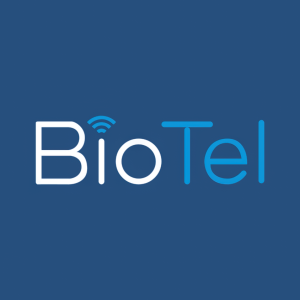Welcome to our dedicated page for Heartbeam news (Ticker: BEAT), a resource for investors and traders seeking the latest updates and insights on Heartbeam stock.
HeartBeam Inc (BEAT) pioneers portable cardiac monitoring solutions through its credit card-sized ECG device and AI-driven diagnostic platform. This news hub provides investors and healthcare professionals with timely updates on the company’s advancements in remote cardiology technology.
Access authoritative reporting on regulatory milestones, clinical study results, and strategic partnerships shaping the future of telehealth diagnostics. Our curated collection includes earnings reports, product launch announcements, and peer-reviewed research validations, including studies conducted with Harvard Medical School faculty.
Key updates cover developments in Vector ECG technology, FDA clearance progress, and AI algorithm enhancements that improve cardiac event detection accuracy. Bookmark this page to stay informed about innovations bridging hospital-grade diagnostics with at-home healthcare solutions.
HeartBeam (NASDAQ: BEAT) announced new study data showing that its AI algorithm combined with vectorcardiography (VCG) outperformed expert cardiologists in detecting atrial flutter, a common arrhythmia. The study, presented at the Heart Rhythm Society annual meeting, involved 173 VCGs, single-lead ECGs, and 12-lead ECGs. Key findings revealed a 40% improvement in detection sensitivity compared to single-lead ECGs reviewed by cardiologists and a 6% improvement over 12-lead ECGs. HeartBeam's core technology captures heart signals in three projections, aiming for a more personalized cardiac care approach. Their AIMIGo™ device, for patient use, is under FDA review.
HeartBeam, Inc. (NASDAQ: BEAT) has won the 'Best New ECG Technology Solution' award in the 8th annual MedTech Breakthrough Awards for their HeartBeam AIMIGo™ device. The AIMIGo™ device is a credit card-sized tool that allows for remote evaluation of cardiac symptoms, capturing heart signals in three projections and synthesizing them into a 12-lead ECG. The device is currently under FDA review and aims to provide a personalized approach to cardiac care outside of medical facilities.
HeartBeam, Inc. (NASDAQ: BEAT) reported positive results for its AIMIGo™ 3D VECG system, showcasing progress in clinical and regulatory milestones. The company anticipates FDA clearance by Q2 2024 for the AIMIGo system and plans for a launch by 2024 end. The VALID-ECG pivotal study for the 12-Lead Synthesis Software submission is underway, aiming to demonstrate similarity with a standard 12-lead ECG. HeartBeam AI showed improved performance in detecting arrhythmias, supported by new patents and positive data presented at EHRA conference. Cash and cash equivalents stood at approximately $12.6 million as of March 31, 2024, enabling future clinical and regulatory milestones.

